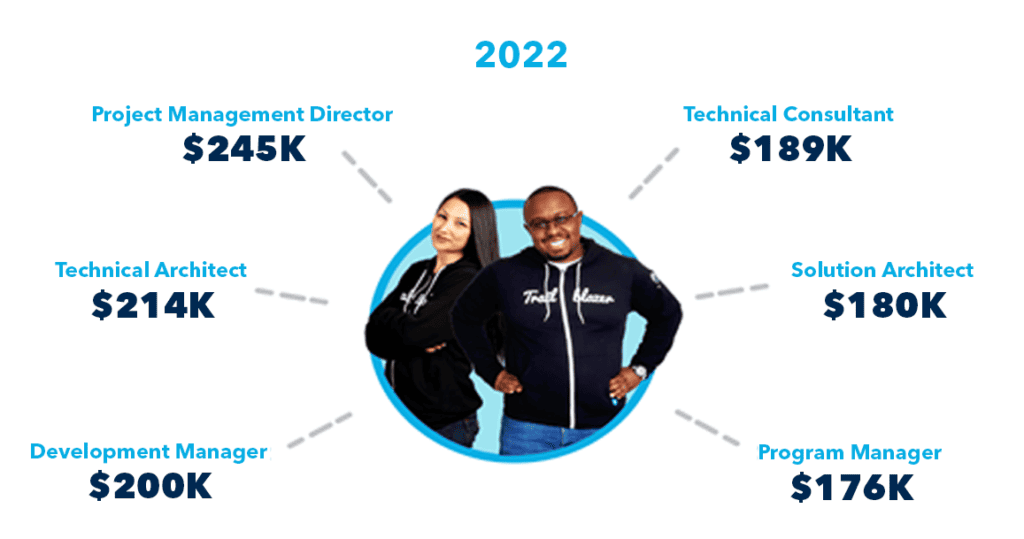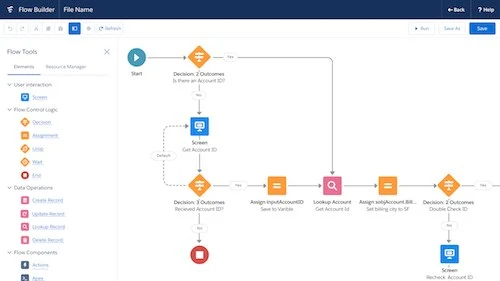In the dynamic landscape of modern business, having the right tools to drive innovation and growth is essential. The Salesforce Platform emerges as a game-changing solution, offering businesses the ability to create custom applications tailored to their unique needs. In this article, we’ll delve into the world of the Salesforce Platform, its features, benefits, and how it can be the driving force behind your business success.

Key Features of the Salesforce Platform
App Builder: Democratizing App Development
The intuitive App Builder empowers users with little to no coding experience to create custom applications using a visual interface. This democratizes the app development process and accelerates time-to-market.
Lightning Framework: Speeding Up Development
The Lightning Framework offers a set of pre-built components and tools that speed up app development. These components are designed with user experience and mobile responsiveness in mind.
Integration Capabilities: Seamlessly Connecting Systems
The Salesforce Platform seamlessly integrates with other Salesforce products and third-party applications, allowing businesses to connect various systems for streamlined data flow.
AI-Powered Insights: Data-Driven Decision-Making
Leverage artificial intelligence to gain insights from data collected within your applications. This enables data-driven decision-making and enhances customer experiences.
Mobile App Development: Access on the Go
The platform enables businesses to develop mobile applications for both customers and employees, ensuring access to critical information on the go.
Transforming Your Business with the Salesforce Platform
Enhanced Efficiency: Streamlining Operations
Custom applications built on the Salesforce Platform can automate manual processes, reduce errors, and improve overall operational efficiency.
Innovation: Fostering Creativity and Growth
Empower your teams to create innovative solutions tailored to your unique business challenges, fostering a culture of creativity and growth.
Scalability: Growing with Confidence
The platform’s architecture allows applications to scale seamlessly as your business grows, ensuring they can handle increased demands.
Personalized Experiences: Boosting Engagement
Build applications that provide personalized experiences for customers and employees, enhancing engagement and satisfaction.
Implementing the Salesforce Platform: A Step-by-Step Guide
Implementing the Salesforce Platform requires a well-thought-out strategy. Here’s a step-by-step guide to help you get started:
Step 1: Identify Needs
Determine the specific needs your custom application will address. Understand your business goals and how the application will contribute to achieving them.
Step 2: Design and Development
Use the App Builder and Lightning Framework to design and develop the application. Collaborate with stakeholders to ensure the application meets their requirements.
Step 3: Testing
Thoroughly test the application to identify and address any bugs or issues. Conduct user testing to gather feedback and make necessary improvements.
Step 4: Deployment
Deploy the application to your desired environment. Train users on how to use the application effectively.
Step 5: Continuous Improvement
Monitor the application’s performance and gather feedback from users. Continuously update and enhance the application based on user insights and evolving business needs.
FAQs about the Salesforce Platform
- Is coding knowledge required to build applications on the Salesforce Platform? No, the Salesforce Platform’s App Builder allows users to create applications using a visual interface, eliminating the need for extensive coding knowledge.
- Can applications built on the platform integrate with existing systems? Yes, the Salesforce Platform offers robust integration capabilities, allowing applications to seamlessly connect with other systems and applications.
- What role does AI play in the Salesforce Platform? AI powers data insights, enabling applications to provide personalized recommendations and automate processes based on collected data.
- Is the Lightning Framework suitable for mobile app development? Absolutely, the Lightning Framework is designed with mobile responsiveness in mind, making it ideal for developing applications for both web and mobile platforms.
- Can the Salesforce Platform accommodate the unique needs of different industries? Yes, the platform is highly customizable and can be tailored to meet the specific requirements of various industries, from healthcare to finance.
- What level of support is available for businesses using the Salesforce Platform? Salesforce offers comprehensive support, including documentation, training resources, and a community of experts to assist businesses in maximizing the platform’s potential.
The Salesforce Platform is a catalyst for business growth and innovation. By harnessing its capabilities, you can create custom applications that address your unique challenges and unlock new opportunities. Embrace the power of the Salesforce Platform to elevate your business to new heights.




